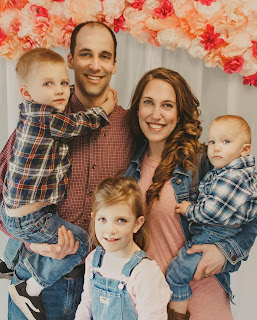"When People Throw Stones"
"We may ask our opponent to justify his charges, or if the charges are false, we can meet them with steadfast denial. Truth spoken to establish the truth is not defensiveness. Nehemiah, when accused of falsehood and shifty motives simply replied, "Nothing like what you are saying is happening" (Nehemiah 6:8). But if they will not believe us we must "let the turbid stream of rumor flow" and wait for our Father's "well done."
Don't worry if people mock you, malign you, tell lies about you. Don't worry if they turn on you. Just don't turn on them. Ask God to give you the grace to tolerate those who grieve you. We must never nourish thoughts of hatred or retaliation. We should rather think of the misery of our enemies hearts — full as they are of jealousy, envy, and bitterness. We must pity them and pray for them. Jesus said, "Love your enemies, do good to those who hate you, bless those who curse you, pray for those who mistreat you" (Luke 6:27).
Love, generosity, blessing, and intercessory prayer are the gifts we have to give to those who revile us. Consider Judas. Though our Lord knew from the beginning who would betray him, not one of his disciples knew (John 13:22). Nothing in Jesus' behavior betrayed the betrayer. Jesus prayed from the cross, "Father forgive them . . ." not when the crucifixion was over, and men were sorry for what they did, but in the very moment it was being done. So it must be for us. "To see that my adversary gives me my rights is natural,"
Oswald Chambers writes, "but from our Lord's standpoint it does not matter if I am defrauded or not; what does matter is that I do not defraud." We must go beyond forgiveness to tender love, concerned more with the misery of the person from which the criticism came than our own misery, showing our critics mercy, serving, them, praying earnestly for them, refusing to wrong them or withdraw from them, taking their wrongs as God takes ours. Brooding over wrong keeps the wounds open. Only forgiveness heals." Experts, from: http://www.ccel.us/mountain.chap13.html, that powerfully uplifted me and encouraged me.
Take aways/applications:Love, generosity, blessing, and intercessory prayer are the gifts we have to give to those who revile us. Consider Judas. Though our Lord knew from the beginning who would betray him, not one of his disciples knew (John 13:22). Nothing in Jesus' behavior betrayed the betrayer. Jesus prayed from the cross, "Father forgive them . . ." not when the crucifixion was over, and men were sorry for what they did, but in the very moment it was being done. So it must be for us. "To see that my adversary gives me my rights is natural,"
Oswald Chambers writes, "but from our Lord's standpoint it does not matter if I am defrauded or not; what does matter is that I do not defraud." We must go beyond forgiveness to tender love, concerned more with the misery of the person from which the criticism came than our own misery, showing our critics mercy, serving, them, praying earnestly for them, refusing to wrong them or withdraw from them, taking their wrongs as God takes ours. Brooding over wrong keeps the wounds open. Only forgiveness heals." Experts, from: http://www.ccel.us/mountain.chap13.html, that powerfully uplifted me and encouraged me.
- God's word is full of testimonies that you and I can relate to.
- Jesus is relatable. He knows what it's like to hurt emotionally, his friends betrayed Him. He was falsely accused many a time. His friends turned their backs on Him. He bears the marks to abuse physically. He knows what it's like to be struck, beaten, cut open and pierced. He has felt that pain!
- Jesus, while in the midst of being betrayed and beaten, died on the cross to take upon Himself the wrongs we [all humankind] were and will be doing. He walked in forgiveness, He literally walked through the pain as He forgave us, and ultimately? He was killed, all the while still looking to His Father, "Father forgive them..." BUT He did not stay dead. He rose from the dead three days later. His death and resurrection making it possible for you and I to be forgiven of our wrongdoing. He embraced his friends, the very ones who betrayed Him. Jesus embraces you and I too. We can walk confidently in his loving kindness.
- Just as we have been forgiven, we can forgive others. For this suffering is momentary. So, when false accusers come our way?
- Speak Truth
- Leave justice in the Lord's hands because He is our ultimate judge and can evaluate our hearts far better than we can.
- Do not give up in doing good. Do not grow weary in doing good.
- Love your neighbor as yourself.
- Love your enemies.
- Bless and do not curse.
- Pray for those who mistreat you.






Comments
Post a Comment